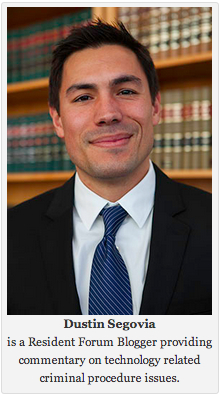 Recently, in Klayman v. Obama, U.S. District Judge Richard J. Leon issued a 68 page order in which he concluded that the NSA’s collection of phone records under the Bulk Telephony Metadata Program not only constitutes a Fourth Amendment search, but also is unreasonable, and, therefore, likely violates the Fourth Amendment. Many may consider this a win for privacy, but Judge Leon is alone in his legal conclusion. Indeed, several district courts and numerous district judges sitting on the Foreign Intelligence Surveillance Court have concluded that the program is constitutional under Smith v. Maryland, which held that individuals do not have a legitimate expectation of privacy in dialed phone numbers because they voluntarily convey this information to third-party phone companies knowing that the information may be recorded.
Recently, in Klayman v. Obama, U.S. District Judge Richard J. Leon issued a 68 page order in which he concluded that the NSA’s collection of phone records under the Bulk Telephony Metadata Program not only constitutes a Fourth Amendment search, but also is unreasonable, and, therefore, likely violates the Fourth Amendment. Many may consider this a win for privacy, but Judge Leon is alone in his legal conclusion. Indeed, several district courts and numerous district judges sitting on the Foreign Intelligence Surveillance Court have concluded that the program is constitutional under Smith v. Maryland, which held that individuals do not have a legitimate expectation of privacy in dialed phone numbers because they voluntarily convey this information to third-party phone companies knowing that the information may be recorded.
In the most recent opinion on the matter, U.S. District Judge William H. Pauley concluded that because Smith controls, the NSA program does not violate the Fourth Amendment. At least a few legal scholars agree and take aim at Judge Leon’s attempt to distinguish Klayman from Smith. Paul Rosenzweig, a George Washington Law lecturer and Lawfare blogger stated, “Judge Leon dismisses Smith v. Maryland (a case that the FISC considered controlling) on the ground that . . . well . . . it’s old.” Rosenzweig further stated, “I guess that’s one way to treat Supreme Court precedent.” Orin Kerr, a George Washington Law professor and Volokh Conspiracy blogger, stated, “I found Judge Leon’s argument [regarding Smith]. . . not only unpersuasive, but quite plainly so.”
On the limited question of whether Smith controls under existing Fourth Amendment doctrine, I tend to agree that it does. Judge Leon notes that “the nature and quantity of the information contained in people’s telephony metadata” today is “much greater” because “people in 2013 have an entirely different relationship with phones than they did thirty-four years ago [when Smith was decided].” Given the different relationship, Judge Leon concludes that he “cannot possibly navigate these uncharted Fourth Amendment waters using as [his] North Star a case [Smith] that predates the rise of cell phones.”
Judge Leon’s argument is unpersuasive. Although phones today are used more frequently by more people, and the NSA program is indeed light years away from the pen register device in Smith, as Judge Leon himself acknowledges, “[W]hat metadata is has not changed over time” (emphasis added). Accordingly, there does not appear to be a meaningful distinction between Smith and Klayman regarding the issue of whether a search occurred; in both circumstances, phone companies recorded similar information about each party’s phone calls and conveyed that information to law enforcement. Thus, under existing Fourth Amendment doctrine, Judge Leon appears to be have erred.
Whether Smith should remain good law is another question and one that I will not address here. Moreover, I am intentionally not arguing about whether the NSA program is “reasonable” under the Fourth Amendment. Asking whether individuals have a reasonable expectation of privacy in their telephony metadata is an entirely different question from assessing the reasonableness of a government program that collects the metadata of basically every cell phone call, stores that information for five years, and allows the NSA to query the database as a method for combatting terrorism. This latter question is of monumental importance and intrigue, and is well beyond the ken of a first-time blogger. For an excellent summary on the challenges this question poses, check out “The Problem at the Heart of the NSA Disputes: Legal Density,” by Benjamin Wittes, Lawfare’s editor-in-chief and Senior Fellow in Governance Studies at the Brookings Institution.
Posted Feb. 9, 2014